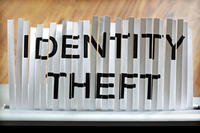So, in a time when financial stability is scarce, many Americans are left wondering what's better - building up their emergency savings or building up their credit.
Most financial experts would argue that a good credit score is the key to financial health, and that a low score needs serious attention. The lower the credit score, the harder it is to secure a good interest rate on home loans, a car, insurance, and it can prevent you from getting good a job. What?s more, while the passage of the Credit Card Holders Act last spring may have improved the way creditors communicate with and charge customers, it also forced companies to tighten credit issuing standards, which will make it harder for consumers to get credit in the future.
"In an environment of tight credit, a compelling argument can be made that a good credit score is more valuable than money in the bank," says Manisha Thakor CFA, Military.com Finance columnist, and author of "Own My Own Two Feet."
Conversely, financial adviser and motivational speaker Suze Orman, who once championed the high credit score over large savings, says that if you have little to no savings then you should concentrate on building a large cushion of liquid assets, rather than pay off debt.
Orman states on her website: "If you have an unpaid credit card balance and not much saved up in emergency savings I need you to listen up. My advice has changed.
"I want you to only pay the minimum due on your credit card balance and instead make it your top priority to build as much of an emergency cash fund as you can.
"Let me tell you why I am now telling you to do this. With rising unemployment, having a big emergency cash fund is vital, even if it means curtailing your credit card repayment strategy."
Jean Chatzky, NBC's financial editor agrees with this advice, and posited on the "Today Show" that if consumers don?t have an emergency fund that they make that their "first priority right now" and try to build at least six months' worth of savings in case of job loss or a catastrophic event. Then, once the fund is established, begin paying down debt.
"By all means start throwing as much money as you can toward those credit cards, starting with the one with the highest interest rate and working your way down, paying at least the minimums on all of them, on time each month," Chatzky added.
Be forewarned: You must make the minimum payments. If you choose forgo a couple of payments to build savings, be prepared for your credit score to take a hit, which takes a while to repair. And, be advised that in addition to credit card companies becoming stricter, they have also changed their idea of what constitutes a good score.
Last year, a score of 720 would have given you access to the best loans and interest rates. Today, that score increased to 760 (the maximum good score being 800), according to Bankrate.com.
If you can, you should try to boost your credit score and your savings because, according to Thakor, a good credit score is the equivalent of having "serious financial bling."
"Financial nirvana would be to have enough money in the bank so that you don?t need to borrow money to begin with. However, most of us don't have the luxury of getting to pick between having a good credit score or having a lot of money - we have to work hard toward achieving what we can do on both fronts," warned Thakor.
If you're unemployed with high debt, consult an on-base financial counselor about your next steps. You can also seek the help of a certified financial planner (CFP) who can assess whether you need to focus on paying down debt or building your savings.
To learn more about getting back on track financially, visit Military.com's Money Channel.










